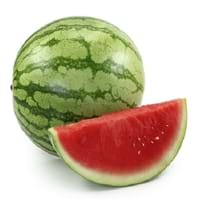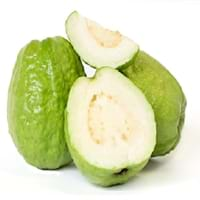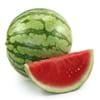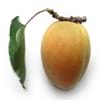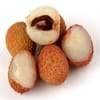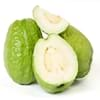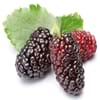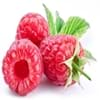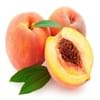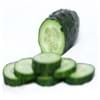Health Benefits
Anti-aging benefits, Anti-inflammatory properties, Asthma treatment, Body hydration, Cancer prevention, Digestive aid, Skin cleansing, Skin rejuvenation
Cancer prevention, Diarrhea treatment, Prevents constipation, Scurvy treatment, Treatment of dysentary
General Benefits
Anti-inflammatory properties, Body hydration, Controls blood pressure, Digestive aid, Maintains healthy cholesterol level
Controls blood pressure, Cures cough, Improves eye vision, Maintains healthy cholesterol level, Treatment of common cold
Skin Benefits
Anti-aging benefits, Brightens and lightens complexion, Hydrates skin
Anti-aging benefits, Brightens and lightens complexion, Hydrates skin, Treatment of skin diseases
Hair Benefits
Promotes longer and healthier hair, Regulates hair growth
Prevents hair loss
Allergy Symptoms
Breathing difficulty, Decrease in blood pressure, Dizziness, Eczema, Hives, Runny nose, Swelling of mouth, tongue or lips, Watery eyes
Breathing difficulty, Coughing, Runny nose, Sneezing, Swelling of mouth, tongue or lips, Wheezing
Side Effects
Allergic reaction, Bloating, Diarrhoea, Indigestion, Intestinal gas, Nausea, Vomiting
Hair thinning, Nail thinning, Skin problems, Tooth decay, Weakness, Possibly unsafe during pregnancy
Best Time to Eat
As a snack in the late afternoon, Don't consume at night and before bed, Eat the fresh ones, avoid mixing with any other foods, don't eat after meal., Strictly avoid empty stomach
As a snack in the late afternoon, Don't consume at night and before bed, Eat the fresh ones, avoid mixing with any other foods, don't eat after meal., Morning time (before lunch)
Vitamin B5 (Pantothenic Acid)
Vitamin C (Ascorbic Acid)
Vitamin K (Phyllochinone)
Phytosterol
Not Available
Calories in Fresh Fruit with Peel
Not Available
Calories in Fresh Fruit without Peel
Not Available
Calories in Frozen Form
Not Available
Not Available
Calories in Canned Form
Not Available
Type
Berry, Melon
Tree fruit, Tropical
Season
Summer
All seasons
Varieties
Sugar Baby, Sangria, Golden Midget, Starlight, Jubilee, Starbrite, Extazy, Stars 'n' Stripes, Mickylee, Yellow Baby, Yellow Doll, Little Baby Flower, Sweet Favorite and Cream of Saskatchewan
Lucknow 49, Allahabad Safeda, Chittidar, Harijha, Apple guava, Hafshi, Arka Mridula and Allahabad Surkha
Color
Canary yellow, Coral red, Orange, Salmon yellow, Scarlet red, White
Green, Pink, Yellow
Origin
Southern Africa
Central America, Mexico, South America
Soil Type
Sandy, Well-drained
Loam, Rocky, Sandy
Climatic Conditions
Dry, Hot
Sunny
Facts about
- Watermelon contain 91% of water.
- In Japan & Chine, watermelon is a popular gift to bring a host.
- Entire watermelon is edible, even the rinds & seeds.
- There are more than 1200 varieties grown in the world.
- The black pigment in Guava leaves is used for textile applications.
- Guava leaves are used to make tea.
- Oils extracted from guava seeds are used in various cosmetics.
- Guava wood is used for decorative purposes.
Other Countries
Algeria, Brazil, Egypt, Iran, Kazakhstan, Mexico, Spain, Turkey, United States of America
China, Indonesia, Mexico, Nigeria, Pakistan, Philippines, Thailand
Top Importer
Germany
Canada
Botanical Name
Citrullus Lanatus
Psidium guajava
Synonym
Citrullus vulgaris
Not Available
Subkingdom
Tracheobionta
Tracheobionta
Division
Magnoliophyta
Magnoliophyta
Class
Magnoliopsida
Magnoliopsida
Subclass
Dillenhidae
Rosidae
Order
Cucurbitales
Myrtales
Family
Cucurbitaceae
Myrtaceae
Species
C. lanatus
Psidium guajava
Generic Group
Gourd
Myrtle
Compare Watermelon and Guava
It is important compare Watermelon and Guava as both the fruits have a different nutritional value. Their comparison can be done on the basis of their vitamin and mineral content, calories, benefits as well as characteristics, making it easier for us to choose the best fruit for our diet. Their general health benefits are as follows:
Watermelon Benefits: anti-inflammatory properties, body hydration, controls blood pressure, digestive aid and maintains healthy cholesterol level.
Guava Benefits: controls blood pressure, cures cough, improves eye vision, maintains healthy cholesterol level and treatment of common cold.
Fruits are also used as a remedy for various hair problems. The hair benefits of Watermelon are: promotes longer and healthier hair and regulates hair growth and hair benefits of Guava are: prevents hair loss. Some fruits are known to cause allergic reactions. The allergy symptoms of first fruit are: breathing difficulty, decrease in blood pressure, dizziness, eczema, hives, runny nose, swelling of mouth tongue or lips and watery eyes and the symptoms of second fruit are: breathing difficulty, coughing, runny nose, sneezing, swelling of mouth tongue or lips and wheezing. Get sorted Watermelon vs Guava comparison with the help of fruit comparison tool by fruitvs.com.
